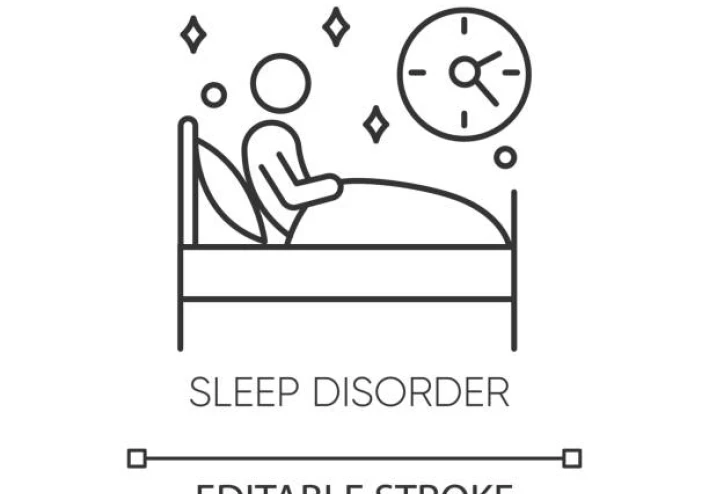
Chronic Insomnia: Causes and Treatment
Chronic insomnia: causes and treatment
Introduction:
Insomnia is one of the most common health problems, affecting millions of people around the world. Insomnia is characterized by difficulty falling asleep or staying asleep, or waking up too early and being unable to fall back asleep. Insomnia can be acute (short-term) or chronic (long-term).
Causes of insomnia:
There are many causes of insomnia, including:
- Psychological factors: Such as stress, anxiety, depression, and post-traumatic stress disorder.
- Medical factors: Such as thyroid disease, respiratory diseases, diabetes, and joint pain.
- Medications: Some medications can cause insomnia as a side effect.
- Behavioral factors: Such as lack of physical activity, poor sleep habits, and caffeine, nicotine, and alcohol use before bed.
- Environmental factors: Such as surrounding noise, room light, and uncomfortable room temperature.
Treatment for insomnia:
Treatment for insomnia depends on the underlying cause. Treatment options include:
- Psychotherapy: Such as cognitive behavioral therapy, which helps to change the thoughts and behaviors that cause insomnia.
- Medication: The doctor may prescribe some sleeping pills to help with sleep, but they should only be used for a short period of time to avoid dependence.
- Lifestyle changes: Such as exercising regularly, avoiding caffeine, nicotine, and alcohol before bed, getting enough sunlight during the day, setting a regular sleep-wake schedule, and creating a comfortable sleep environment.
- Alternative therapies: Such as light therapy, acupuncture, yoga, and meditation.
Tips to prevent insomnia:
- Maintain a regular sleep schedule: Go to bed and wake up at the same time each day, even on weekends.
- Create a comfortable sleep environment: Make sure your bedroom is dark, quiet, and cool.
- Avoid caffeine, nicotine, and alcohol before bed: These substances can make it difficult to fall asleep.
- Exercise regularly: Exercise can help improve sleep quality, but avoid exercising close to bedtime.
- Get sunlight exposure during the day: Sunlight exposure helps regulate the body's natural clock.
- Relax before bed: Take a warm bath, read a book, or practice relaxation techniques such as deep breathing or meditation.
- Avoid using electronic devices before bed: The blue light emitted from these devices can interfere with melatonin production, a hormone that helps regulate sleep.
When to see a doctor:
If you have been experiencing insomnia for more than two weeks or if insomnia is affecting your daily life, it is important to see a doctor to determine the underlying cause and get appropriate treatment.
Conclusion:
Insomnia is a common problem that can be treated. By identifying the underlying cause and following the appropriate treatment steps, you can improve your sleep quality and restore your health and well-being.




































